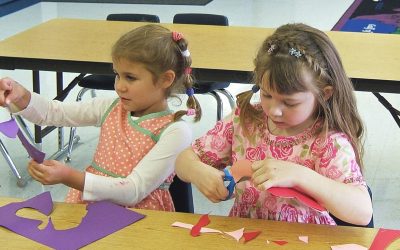“Practice isn’t the thing you do once you’re good. It’s the thing you do that makes you good.”
~ Malcolm Gladwell, in Outliers: The Story of Success, p. 42
Parents often tell their kids to practice. Perhaps it involves playing a musical instrument, or mastering multiplication tables, or improving swim strokes, or honing gymnastic routines, or learning another language. Practice can lead to achievement and fulfilment!
However, during some intervals (such as summer vacation, holidays, or seasonal break times—or when activities or other opportunities take precedence), practice may fall by the wayside. Are practice lulls potentially learning lags? Could they be problematic? Should parents be worried that their children might become lazy, or lose whatever “edge” it takes to succeed?
The short answer is NO. A more comprehensive answer—consisting of four practical considerations—follows.
1) ELEMENTS OF PRACTICE
Practice demands resolve, self-discipline, and patience. Ah, but these requirements can be elusive! There are times when a person doesn’t feel like embarking upon a task, or seeing it through to completion. It’s important to realize that it’s okay to step away, back, or sideways, and to recharge, regain perspective, or redirect focus before moving forward. Resolve, self-discipline, and patience may take time to accrue! Parental encouragement, reinforcement, and reassurance are hallmarks of a supportive milieu, and can be very motivating.
2) GOOD HABITS
Help kids get a better understanding of their own “ways of being”—their personal habits, tendencies, and preferences—including what they might need to work on over time to make the most of any practice times. Consider focusing together on prioritizing (determining what really requires attention); scheduling (maintaining a comfort level while keeping things on track); and organizing (being mindful of strategies that serve them well, and materials, resources, and preparation, too). Also, kids can try adding intriguing, creative, or artistic elements to their practice sessions, based on personal interests (sports? technology? music?) so practice becomes more appealing.
3) UPBEAT ATTITUDE
A person’s attitude toward practice can be nurtured. Parents can help children develop positivity and confidence by conveying why practice matters, how to persevere, and how to incorporate adequate downtime for relaxation and play. Effort and commitment are empowering, but so is optimism. Kids can think about their previous experiences, and the challenges they’ve overcome. Christopher Reeve (aka Superman) said, “Once you choose hope, anything’s possible.”
4) CLEAR EXPECTATIONS
Are expectations fair, flexible, realistic, and attainable? If not, kids can clarify or amend them. If so, there’s greater likelihood kids will strive to meet those expectations—by way of practice, and investments of their time and effort. Parents can demonstrate the merit and pleasure of advancing one step at a time, and help kids learn to set realistic standards for themselves, building upon what they already know and can do.
LAST WORDS
Practice can be daunting, boring, and tiring. But it can also be invigorating, meaningful, and lead to new discoveries and creative ventures! And, practice sometimes comes in waves, not torrents. Reconsider those words in bold font above. Encourage kids to pay attention to resolve, self-discipline and determination; to try to get a better understanding of their own tendencies relating to prioritizing, scheduling and organizing; to embrace an optimistic (positive and confident) attitude: and to co-create clear and manageable expectations for whatever they practice—and thereby discover the benefits and joy that will ensue.








